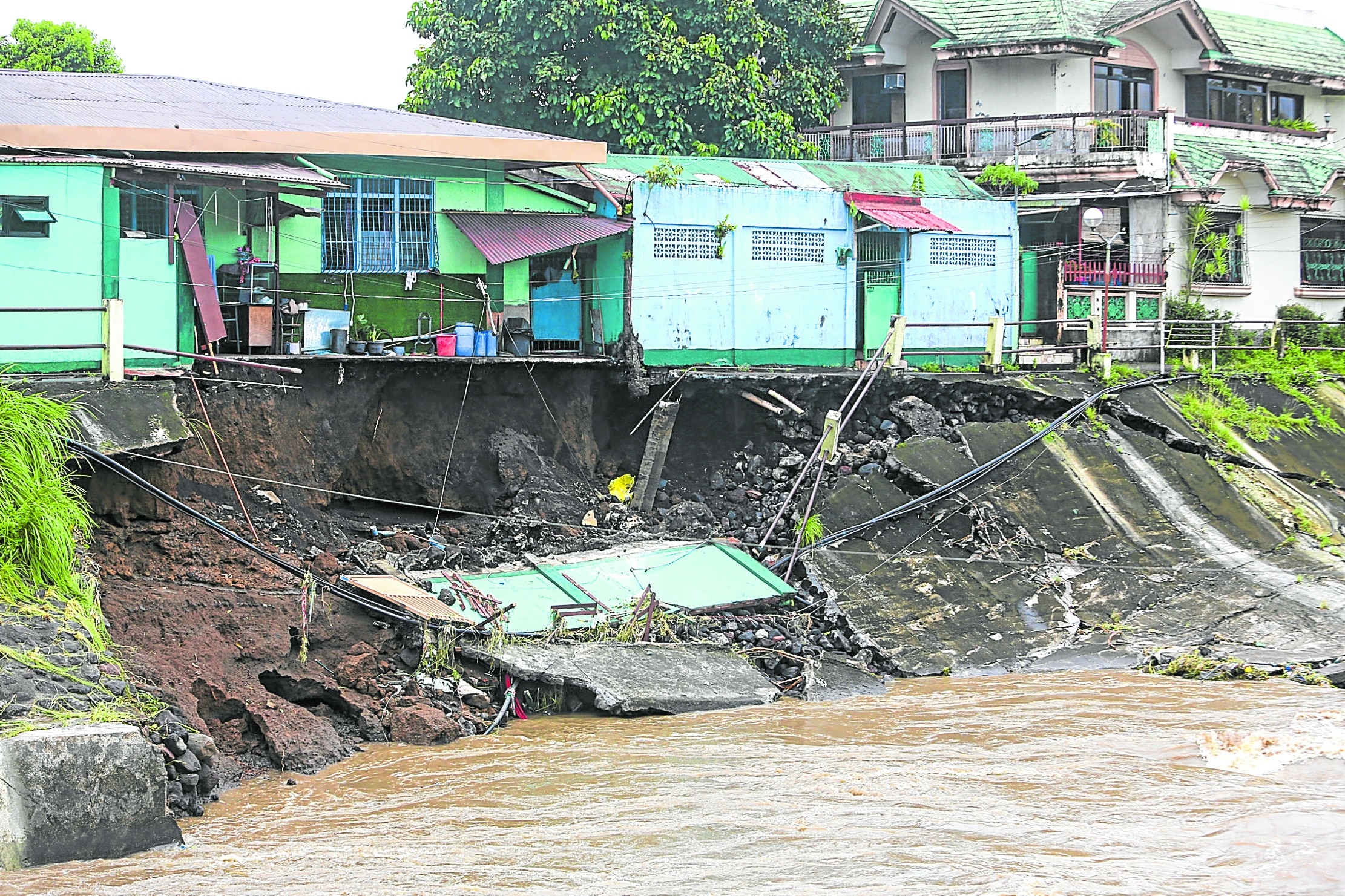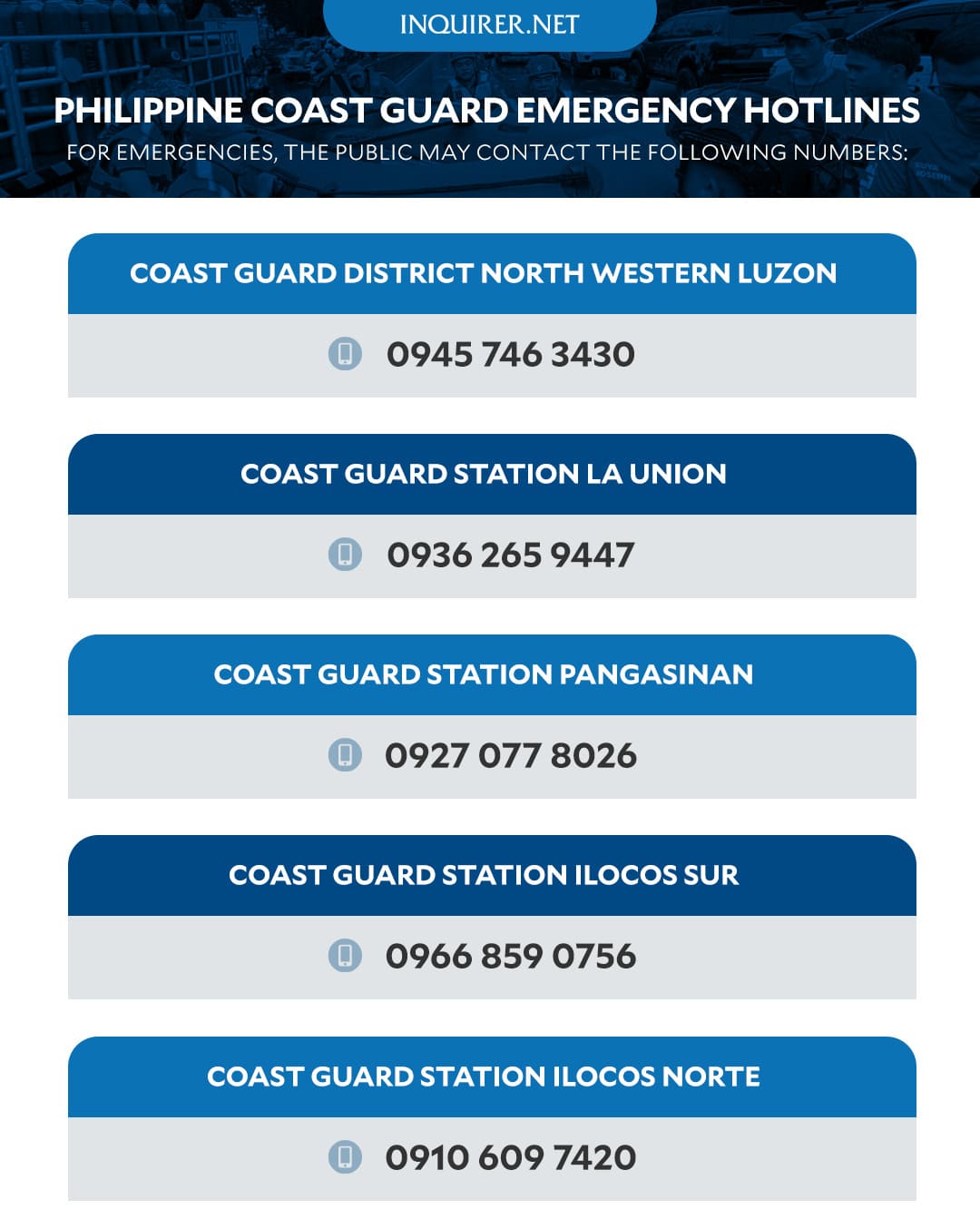Kristine rescuers ‘overwhelmed’ by pleas for help amid flood
READ: LIVE UPDATES: Tropical Storm Kristine

KRISTINE’S FURY Heavy rains and strong winds brought by Tropical Storm Kristine on Tuesday trigger a landslide and massive flooding on the riverside of Barangay San Francisco, Guinobatan, in Albay, forcing many residents to flee to evacuation centers. —Photo by Mark Alvic Esplana
LEGAZPI CITY, ALBAY, Philippines — When Maria Beresa Obias, 19, of Barangay Basud in Polangui town in Albay realized that rescuers could not immediately come for her family, she sprang into action.
With her 24-year-old brother at her side, she began tearing apart the roof of their one-story house around 7 p.m. on Tuesday as floodwaters started rising amid the unrelenting rains brought by Tropical Storm “Kristine” (international name: Trami).
Determined, Obias knew they had to move to higher ground as the water was already waist-deep in the neighborhood.
READ: Kristine makes landfall; Intense rains expected in 9 provinces
By 10 p.m., they had moved their 87-year-old grandmother, six nephews and nieces, including an 8-month-old baby, and her three siblings to the roof. A big plastic basin also proved useful in keeping the little ones above water.
Article continues after this advertisement“When our neighbors heard us removing the roof, they allowed us to transfer to their place and enter through the window on the second floor. They took in three other families,” Obias told the Inquirer in a phone interview on Wednesday.
Article continues after this advertisementPleas for help in social media
They spent the night at their neighbor’s two-story house in soaked clothes and without any food and were only rescued around 7 a.m. the following day.
Local disaster management offices and responders in many parts of Bicol were swamped by calls for help posted on social media.
Gremil Alexis Naz, spokesperson of the Office of Civil Defense (OCD) in Bicol, said the office staff and those in the field were simply “overwhelmed.”
Like the Obias household, more families were forced to the rooftops in the third district of Albay, the Rinconada area, and Naga City in Camarines Sur, as rescuers could not immediately reach them due to the strong flood currents.
Casualties
Rescue operations in some towns resumed on Wednesday morning using motorized boats and big trucks.
Dante Baclao, the acting chief of the Albay Public Safety and Emergency Management Office, said they received many requests for rescue around midnight Tuesday but could not move because of the flood, particularly in the towns of Polangui, Libon, and Oas.
In Guinobatan, Albay, one of the two individuals—a mother and her daughter—earlier reported missing after a landslide Tuesday night was later found dead.
Maguiron village councilor Carl Pardiñas said the body of the mother was recovered around 9 a.m. on Wednesday, while her daughter remained missing.
In Camarines Sur, Gov. Vincenzo Renato Luigi Villafuerte said they had rescued 301 people from the towns of Nabua, Bula, Bato, Pili and Ocampo as of 7 a.m. on Wednesday.
Earlier, the police reported that an 11-year-old boy went missing on Tuesday after being swept away by the onrushing current in Barangay San Nicolas, Iriga City.
Villafuerte said 21,300 families, or 95,300 individuals, were evacuated in the province.
The OCD data showed that 1,133 families, or 4,528 individuals, were also evacuated in Masbate province; 22 families, or 84 people, in Catanduanes; and 536, or 1,717 people, in Camarines Norte as of Tuesday night.
‘Red alert’ in Luzon
Meanwhile, President Marcos noted that the Bicol region was the first to be hit by Kristine, even though it was practically just “on the periphery” of the storm’s projected path.
He assured former Vice President Leni Robredo of aid for her home region “as soon as we can get in.”
Malacañang ordered the suspension of work in government offices and classes at all levels across Bicol on Tuesday.
As Kristine moved closer toward Luzon, the OCD on Wednesday said seven regions had been placed under red alert, activating “Charlie Protocol,” or the highest level of emergency preparedness.
Listed among the high-risk areas were the Cordillera Administrative Region, Cagayan Valley, Central Luzon, Calabarzon (Cavite, Laguna, Batangas, Rizal, and Quezon), Mimaropa (Mindoro, Marinduque, Romblon, Palawan), Bicol, and Eastern Visayas. —with reports from Clarence Roi Gillego and Delfin T. Mallari Jr., Nestor Corrales and Frances Mangosing
